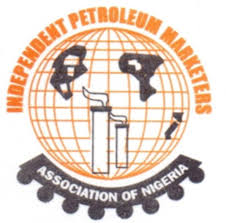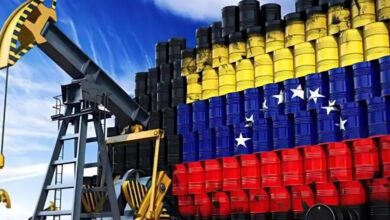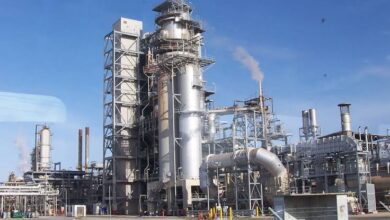
Oil theft is an illegal appropriation of crude or refined oil products from the pipelines of multinational oil companies, and sold at both
local and international markets.
In Nigeria, since the discovery of oil in 1956, theft and sabotage of oil installations and the resultant repairs of pipelines continue to drain the nation’s income.
The ‘hydra-headed monster’ has persistently unleashed economic disaster on the country, defying all known solutions proffered by successive governments.
Over the years, several measures like, military operation, community-based security and monitoring had been deployed to put an end to the economic sabotage, but to no avail.
The Group Managing Director/Chief Executive Officer of the Nigerian National Petroleum Company Limited (NNPC Ltd), Mallam Mele Kyari, has described it as a national emergency on account of the proportion, dimension and sophistication it has taken in recent times.
Economic/Financial Losses
Between January and December last year (2021), Nigeria lost about N1.6 trillion ($4billion) to crude oil theft. That is, 200,000 per day at an average price of $55 per barrel, according to the documents obtained from the NNPC Ltd.
In 2022, between January and April alone, the volume of crude stolen has risen to about 250,000 barrels per day putting the total loss at
about N619.7 billion ($1.5billion) at the rate of $100 per barrel.
It is indeed true that Nigeria, as an oil producing country, ought to be enjoying a bonus now with the sudden rise in the price of crude oil in the international market due to the Russia-Ukraine situation; unfortunately, the reverse is the case.

Before the Russia-Ukraine crisis, crude was selling between $96 and $97 per barrel. It shot up to $105 per barrel the following day after
the conflict began. It has since then been hovering between $110 and $125 per barrel. Nigeria is not reaping as much as it should from this because it is not able to meet its OPEC production quota.
The country’s crude oil production has dropped to an all-time low of 1.29million barrels per day (without condensate). The addition of condensate brings Nigeria’s current production to 1.49mbpd.
A look at production figures from 2020 till date shows how much of a monster the menace of crude oil theft has become. The average
production in 2020 was at 1.77mbpd.
As a matter of fact, on April 17, 2020 when the world was brought to a halt and economic activities paralysed due to Covid-19 lockdown, the country recorded the highest production level of 2.49mbpd.
The peak production was attributed to zero crude oil theft in Nigeria, obviously because there was no market for the thieves to sell their
stolen crude.
According to Mallam Kyari, what that development showed was that Nigeria has the capacity to produce that figure (2.49mbpd) on any normal day because there was no special intervention of any kind that led to that peak production on that day.
However, as normalcy began to return and the price of oil began to experience a steady rise, the oil thieves began to step up their game
and upstream operators began to experience production losses which have been growing since in almost direct proportion to the rise in
crude oil price in the international market.
Explaining the situation recently, the GMD said it got to a point where, if you inject 239,000 barrels of crude oil into either of the Trans-Niger Pipeline or the Nembe Creek Trunk Line (these are some of the major pipelines that convey crude oil to the terminals for export), you will only receive 3,000 barrels. It got to a point where it was no longer economically sustainable to pump crude into the lines and a force majeure was declared.

In 2021, a similar trend was observed. In January of that year, out of about 239,000bpd pumped into the line, only 190,000bpd was recovered putting the loss at 49,000bpd.
The rate of oil theft kept increasing as the price of crude oil was rising in the market until March 2022 when there was zero recovery from all the volumes that was pumped into the line.
How is the crude oil stolen?
To know how lethal the crime is, one needs to look at the rate at which the crude pipelines are breached with insertions. On a stretch of 20kilometers pipeline, there were 85 insertion points in three weeks. The Trans-Forcados Pipeline, which is about the most reliable of all the land lines, is not spared. It records about 19,000bpd loss day.
Another noticeable pattern in the trend of oil theft is that it is more endemic with Joint Ventures(JV) assets and those that belong to
the Independents than with Production Sharing Contracts(PSCs) assets. This is likely because of the nature of the JV assets which are mainly
onshore or in swamp/shallow waters. This makes the evacuation pipelines more accessible than those of the PSCs which are offshore and in deep waters.
There is also a pattern in the way the theft is carried out. This can be discerned from the size of pipes inserted on the lines and the technology deployed in carrying out the insertion.
In some cases, the pipes inserted to steal crude oil from the lines are small and fitted in an amateurish way. This is an indication that those involved are small time criminals, more likely artisanal refiners who operate the slew of illegal refineries that dot the creeks of the Niger Delta from Akwa Ibom to Rivers, and from Delta to Bayelsa.
Some of the pipes fitted into the lines to siphon crude oil are big. In some cases, they are of same size with the pipeline or of the size that is used at the terminal to pump crude into vessels. A close look at them would reveal that they are professionally fitted with the use
of cutting-edge technology.
There have been cases where riser pipes were used, indicating that the criminal deployed cranes. These cases indicate that the persons involved are not the regular illegal refinery operators but sophisticated and very knowledgeable criminals with access to vessels through which they ship the stolen crude oil out of the country.

The involvement of this last group is what accounts for the high volumes involved in the theft which has become an existential economic threat to the oil and gas industry and even Nigeria as a nation.
On the other hand, artisanal refiners and their illegal refineries have constituted a very grave danger to the environment and people of the host communities through the heavy pollution caused by their activities. This is beginning to cause soot in the atmosphere, ultimately leading to health challenges in some of those communities.
There are also cases of sheer vandalism where the lines are just blown out with explosives resulting in spillages and environmental hazard.
Human Losses
Apart from the economic losses associated with the crude oil theft, so many lives have been wasted as a result of the activities of these economic saboteurs.
Just recently, charred bodies were left scattered among burnt palms, cars and vans after an explosion which killed more than 100 people at an illegal oil refining depot on the border of Rivers and Imo states.
Recent Measures Taken To Curb Oil Theft
With the twin menace of oil theft and pipeline vandalism assuming epidemic proportion, the President Muhammadu Buhari has given marching orders to the Chief of Defense Staff to lead a war against the criminals.
All the security agencies have been mobilized to flush out the criminal element and restore normalcy. In fact, the DSS and the Navy have already made some arrests.
NNPC has also taken the fight to another level by deploying community-based security to monitor the pipelines while it is working on deploying technological tools for more effective surveillance and monitoring of the lines and facilities.

Economic and Financial Crimes Commission (EFCC) and Nigerian Financial Intelligence Unit (NFIU) are also tracking movement of funds relating to the criminality.
While we await the measures to start yielding results, it should be noted that every Nigerian is affected by the menace of oil theft and pipeline vandalism, therefore, everyone must rise up against those behind them.






